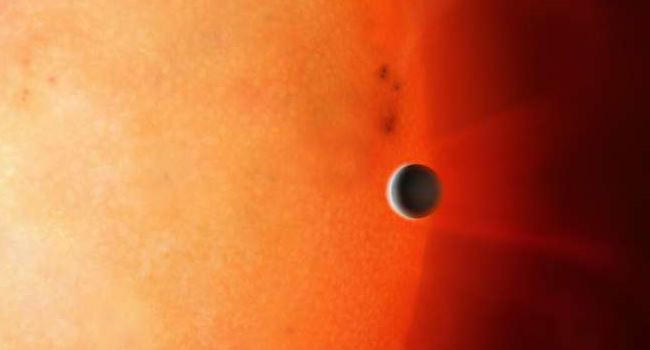Tech
Astronomers discover ‘forbidden’ planet orbiting the “Neptunian Desert”

An international team of astronomers led by the University of Warwick has found a “forbidden” planet orbiting the “Neptunian Desert” of another star.
Located 920 light years from Earth, exoplanet NGTS-4b is 20 percent smaller than Neptune, yet it retains an atmosphere despite being close enough to circle its star once every 1.3 days and having a surface temperature of 1,000° C (1,800° F).
The hunt for exoplanets keeps throwing out surprises and the latest is a planet that simply shouldn’t be where it is.
Read also: Panasonic cuts ties with embattled Huawei after US ban
Discovered by the Next-Generation Transit Survey (NGTS) telescope array at the European Southern Observatory’s Paranal Observatory in Chile’s infamous Atacama Desert, NGTS-4b is a “forbidden” planet in that it is a Neptune-sized planet with a mass 20 times that of the Earth, it is close to its star, but it still has an atmosphere.
It’s forbidden because it’s the first Neptune-like exoplanet with an atmosphere ever found that is situated in what is known as the Neptunian Desert. That is, the zone where such a world should be stripped of its gases and turned into a ball of rock.
However, by studying the way its host star’s light dips as NGTS-4b passes in front of it, the team was able to determine that it alters the light curve by 0.2 percent instead of the more usual 1 percent, indicating an atmosphere.
Join the conversation
Support Ripples Nigeria, hold up solutions journalism
Balanced, fearless journalism driven by data comes at huge financial costs.
As a media platform, we hold leadership accountable and will not trade the right to press freedom and free speech for a piece of cake.
If you like what we do, and are ready to uphold solutions journalism, kindly donate to the Ripples Nigeria cause.
Your support would help to ensure that citizens and institutions continue to have free access to credible and reliable information for societal development.












